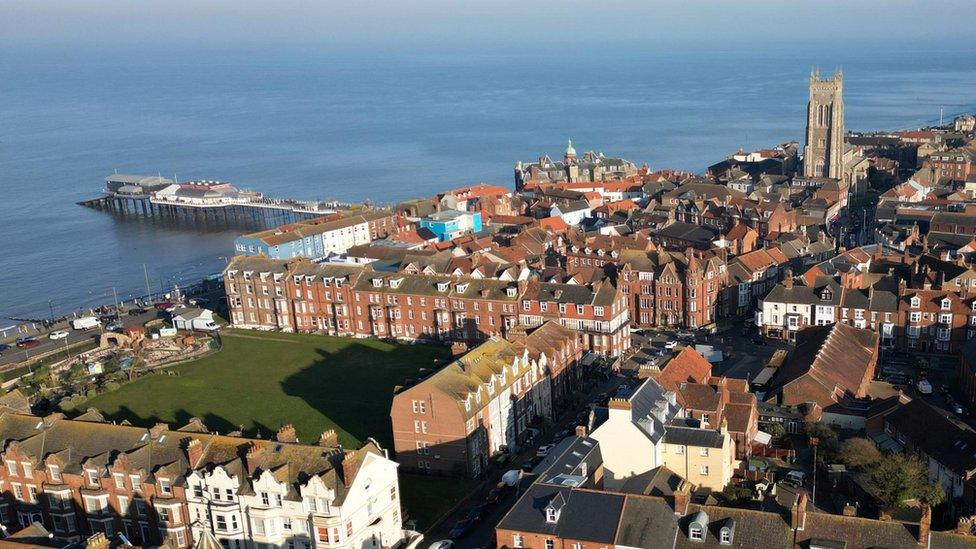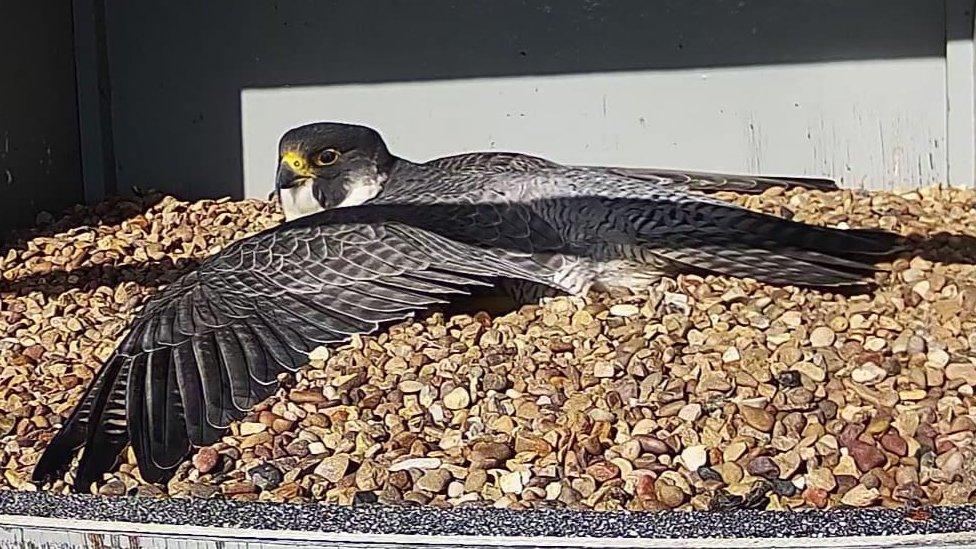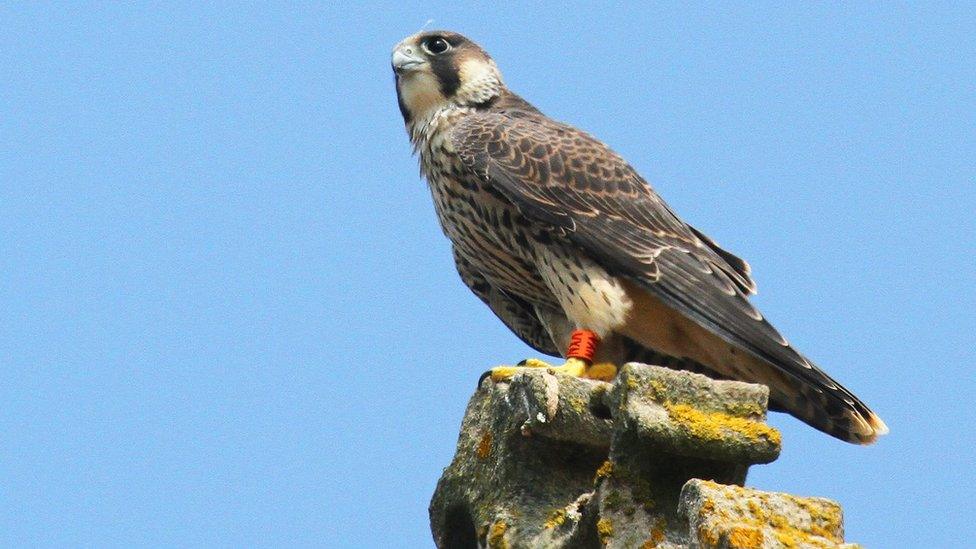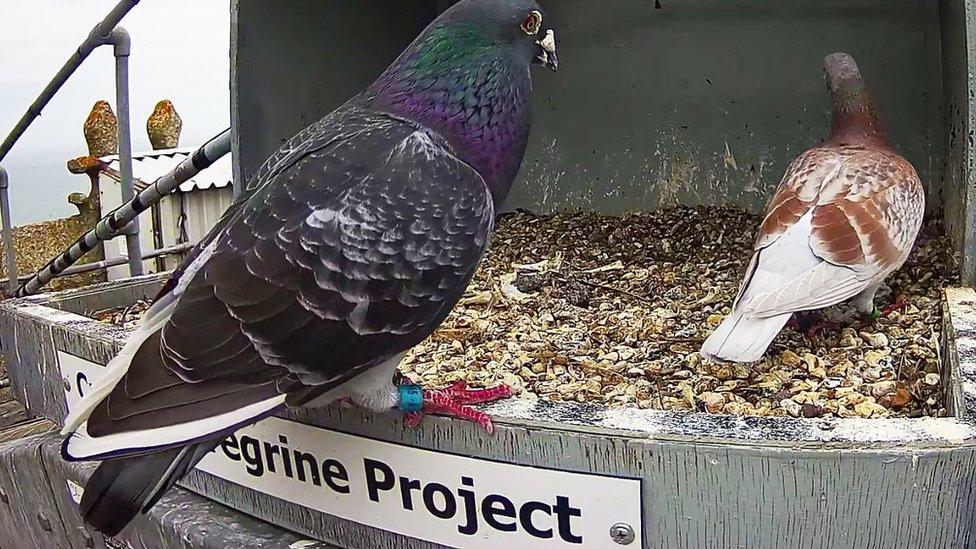Cromer peregrine falcon lays first egg of season at church
- Published
Cromer church peregrine falcon lays first egg of year
A peregrine falcon that set up home at a church tower with her mate has laid her first egg of the season.
The pair nest year-round on a platform at Cromer Parish Church in Norfolk, with interest in their young attracting thousands of visitors each year.
The Cromer Peregrine Project (CPP), which monitors the site, captured the laying on Sunday on its camera.
Chris Skipper of CPP said a live stream and watchpoint next to Cromer Museum would be available from Good Friday.
The group posted regular updates on Facebook, external over the weekend, including footage of the breeding pair, affectionately known as Poppy and Henry, mating and taking turns on the egg.
Several people left comments about the "fantastic news", and "fingers crossed for a successful season".
"The first egg is eight days earlier than last year," said Mr Skipper.
"We expect three eggs as in previous years; the eggs usually come approximately 60 hours apart so we are looking at Wednesday late afternoon/early evening [for the second].
"Hatching should take place around 25 April."

The project has three cameras installed on the church tower to monitor the nesting box

The female was seen enjoying the sun on Saturday
The platform was set up on the church in 2018, with more than 13,000 people using the watchpoint's binoculars and telescopes to see two females hatch and fledge last year.
A similar project monitors peregrines at Norwich Cathedral, with the pair sadly losing their chicks last spring.

Peregrine falcon
Top diving speed of 180mph (290km/h) - making it the world's fastest creature
1,769 breeding pairs in UK (latest figures from 2014) - up from about 1,500 in 2002
Hen lays three to four eggs a year
UK birds remain resident all year round, with others visiting from northern Europe
Diet consists of other birds, mostly pigeons

Follow East of England news on Facebook, external, Instagram, external and X, external. Got a story? Email eastofenglandnews@bbc.co.uk, external or WhatsApp 0800 169 1830
Related topics
- Published4 August 2023

- Published14 July 2023
